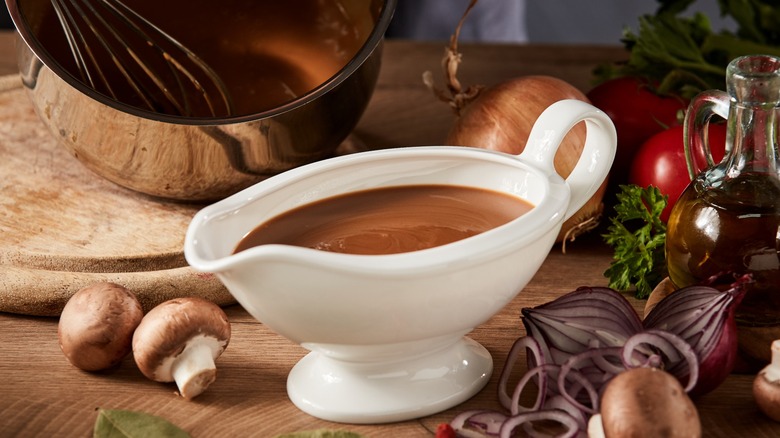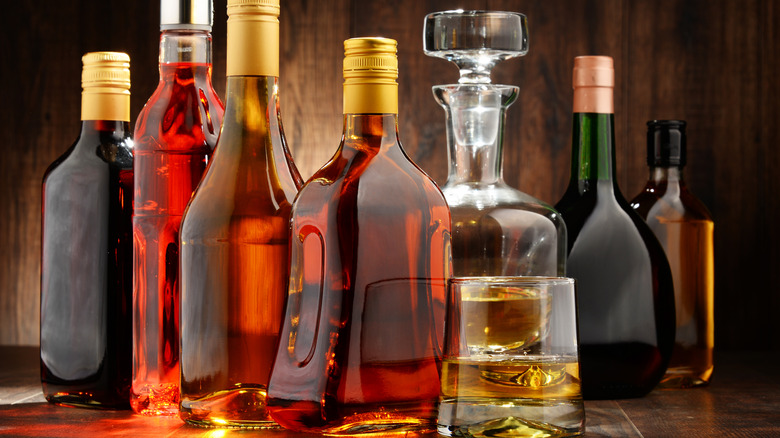The Proper Way To Season Your Gravy When Adding A Boozy Kick
One way to give your next gravy an instant boost of flavor is to add a splash of booze to it. Depending on what kind of alcohol you use you can get a variety of different flavors and tasting notes. However, if you are planning on adding a hint of alcohol to your recipe you might want to hold off on seasoning your gravy until after you've added this ingredient. This is because the inclusion of alcohol will change the flavors in your gravy, adding deeper tasting notes, and so will influence how much you need to season it.
Whereas gravy without a boozy kick might need more flavor complexity from spices and seasonings, gravy that does have alcohol has more layers of flavor in it already. So you probably won't need as much salt or pepper after the fact. If you add these seasonings before, you risk making a gravy that is over-seasoned or overly salty; remember you can always add more seasoning but it's a lot harder to lessen the seasoning of a dish. So, always taste your gravy after adding a first tablespoon of booze and letting it simmer to reduce the alcohol, and only then see how much other seasoning — or further alcohol — you need. You may be surprised to find your sauce already has a great flavor.
What kind of booze to add to your gravy
When thinking of how you can get the best flavor from adding booze to your gravy, you'll want to consider the type of alcohol you're using. Whiskey is an easy choice to add to gravy and, depending on the variety, you can bring in some interesting tasting notes. A smoky or peaty variety will give your gravy a complex savoriness. Other whiskeys can bring a subtle toffee sweetness to the sauce that balances the richness of the fatty gravy.
Golden cognac is another popular choice to add to gravy. This high-quality brandy has a complex flavor of sweet, spicy, and fruity. It does a lot of work for infusing your gravy with a multitude of flavors that will pair well with a variety of different dishes. Cognac is very smooth and won't have that same bite that whiskey or other booze might have when used in cooking. You don't have to overthink your alcohol choice though; as a general rule of thumb if you would drink it you will probably like how it tastes after you've cooked it. Port, red wine, and sherry are all options, too, but remember that sherry can add sweetness, so always go easy with the amounts at first.

